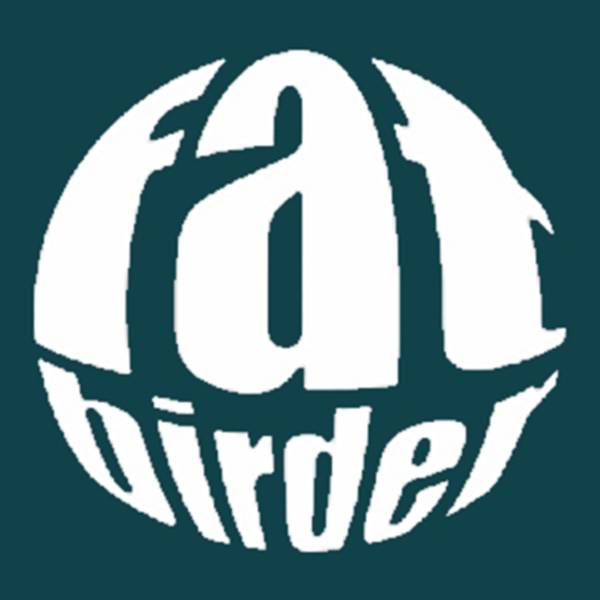Free and Sovereign State of Veracruz de Ignacio de la Llave
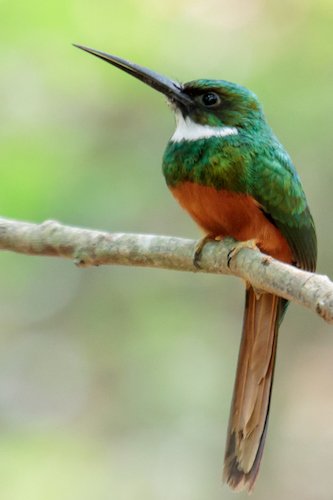
Veracruz (is one of the 31 states which, along with Mexico City, comprise the 32 Federal Entities of Mexico. The state is a crescent-shaped strip of land wedged between the Sierra Madre Oriental to the west and the Gulf of Mexico to the east
covering nearly 72,000 km2 (just under 28,000 square miles), with a population of around 8.2 million people, nearly one million of whom live in the Veracruz metropolitan area. Located in eastern Mexico, Veracruz is bordered by seven states, which are Tamaulipas, San Luis Potosí, Hidalgo, Puebla, Oaxaca, Chiapas, and Tabasco. Veracruz is divided into 212 municipalities, and its capital city is Xalapa-Enríquez with a population half the size of Veracruz city. It has a significant share of the coastline of the Gulf of Mexico on the east of the state. The state is noted for its mixed ethnic and indigenous populations. Its cuisine reflects the many cultural influences that have come through the state because of the importance of the port of Veracruz. In addition to the capital city and Veracruz, the largest cities are Coatzacoalcos, Córdoba, Minatitlán, Poza Rica, Boca Del Río and Orizaba.
Geographically a very mixed state, it can be divided into nine regions: The Sierra de Zongolica, the Tecolutla Region, the Huayacocotla Region, the Metlac River area, the Tuxtlas Region, the Central Region, the Laguna del Castillo Region, the Pueblo Viejo-Tamiahua Region and the Laguna de Alvarado Region. The topography changes drastically, rising from the narrow coastal plains to the highlands of the eastern Sierra Madre. Elevation varies from sea level to the Pico de Orizaba, Mexico’s highest peak at 18,491 feet above sea level. The coast consists of low sandy strips interspersed with tidewater streams and lagoons. Most of the long coastline is narrow and sandy with unstable dunes, small shifting lagoons, and points.
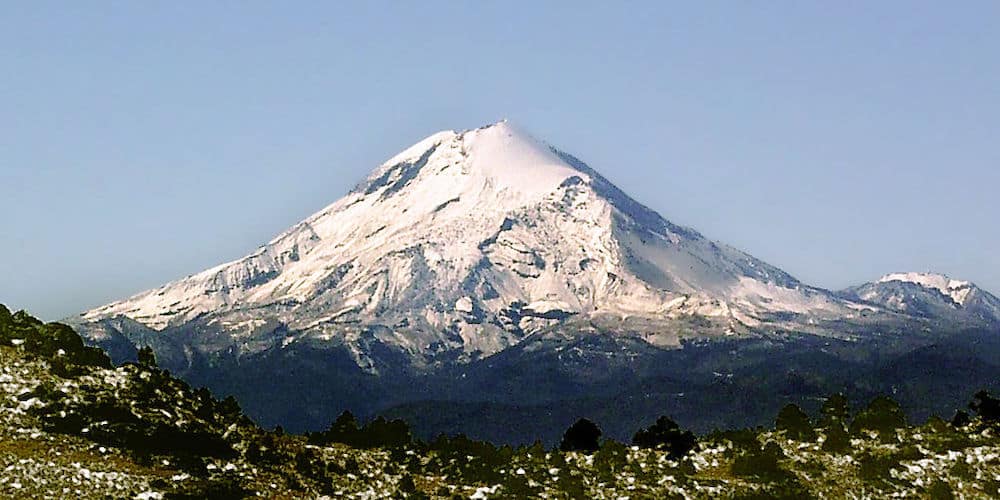
Pico de Orizaba – ©Ricraider CC BY 2.0 via Wikimedia Commons
The mountains are of the Sierra Madre Oriental and the Trans-Mexican Volcanic Belt. Mountain ranges include the Sierra de Topila, Sierra de Otontepec, Sierra de Huayacocotla, Sierra de Coxquihui, Sierra de Chiconquiaco, Sierra de Jalacingo, Sierra de Axocuapan, Sierra de Huatusco, Sierra de Zongolica, and the Sierra de Los Tuxtlas. The Pico de Orizaba is covered in snow year-round; the Cofre de Perote is covered in winter. Major valleys include the Acultzingo, Córdoba, Maltrata, Orizaba and San Andrés.
More than 40 rivers and tributaries provide water for irrigation and hydroelectric power; they also carry rich silt down from the eroding highlands, which is deposited in the valleys and coastal areas. All of the rivers and streams that cross the state begin in the Sierra Madre Oriental or in the Central Mesa, flowing east to the Gulf of Mexico. The important ones include: Actopan River, Acuatempan river, Río Blanco, Cazones River, Coatzacoalcos River, Río de La Antigua, Ayyappan River, Jamapa River, Nautla River, Pánuco River, Papaloapan River, Tecolutla River, Tonalá River, Tuxpan River and Xoloapa River. The largest in terms of water discharge are the Pánuco, Tuxpan, Papaloapan, Coazocoalcos and Uxpanapa. The Panuco, Tuxpan, Papaloapan and Coatzacoalcos are navigable. Two of Mexico’s most polluted rivers, the Coatzacoalcos and the Río Blanco are located in the state. Much of the pollution comes from industrial sources, but the discharge of sewage and uncontrolled garbage disposal are also major contributors. The state has very few sewage treatment plants, with only 10% of sewage being treated before discharge.

Actopan River – ©Isaacvp CC BY-SA 4.0 via Wikimedia Commons
The state also has ten major waterfalls and ten major coastal lagoons. There is only one significant lake, called Lake Catemaco. Off the coast are the islands of Isla de Lobos, Isla de los Burros, Isla de Sacrificios, Isla de Salmendina, Isla del Idolo, Isladel Toro, Isla Frijoles, Isla Juan A Ramirez, Isla Pajaros and Isla Terrón and the ocean reefs called Blanquilla, Medio, Tangüillo, Tuxpan, Gualleguilla, Gallega, Anegada de Adento Anegada de Afuera and Cabezo.
The large variation of altitude results in a large mixture of climates, from cold, snow-topped mountain peaks to hot, humid tropical areas on the coast. 32% of the state is classified as hot and humid, 52% as hot and semi humid, 9% is warm and humid, 6% as temperate and humid and 1% is classified as cold. Hot and humid and hot and semi-humid climates dominate from sea level to about 1,000 m. Average annual temperature ranges from 22 to 26 °C with precipitation varying from around 80 inches to 138 inches per year. Cooler and humid climates are found at elevations between 1,000 and 1,600 m. These have an average temperature of between 18 and 22 °C with precipitation varying between 80 and 100 inches annually. Temperate climates are found at higher altitudes, and cold climates are found at the highest elevations, reaching up to the Cofre de Perote and the Pico de Orizaba. There is a small semiarid region around the city of Perote and the west of the Huasteca area. This is due to a rain shadow caused by the Trans-Mexican Volcanic Belt and the Sierra Madre Oriental, which do not permit the flow of moist Gulf air to this region.
Various types of forest cover the state, but evergreen tropical forest dominate. The state’s ecology is of great importance for many plant and animal species. It is a centre of plant endemism and has two separate endemic bird areas. Veracruz has been described as having one of the richest varieties of wildlife in the western hemisphere. As well as insects, the state is known for its many arachnids, and features over 25 species of tarantula (Theraphosidae), of which many are endemic.
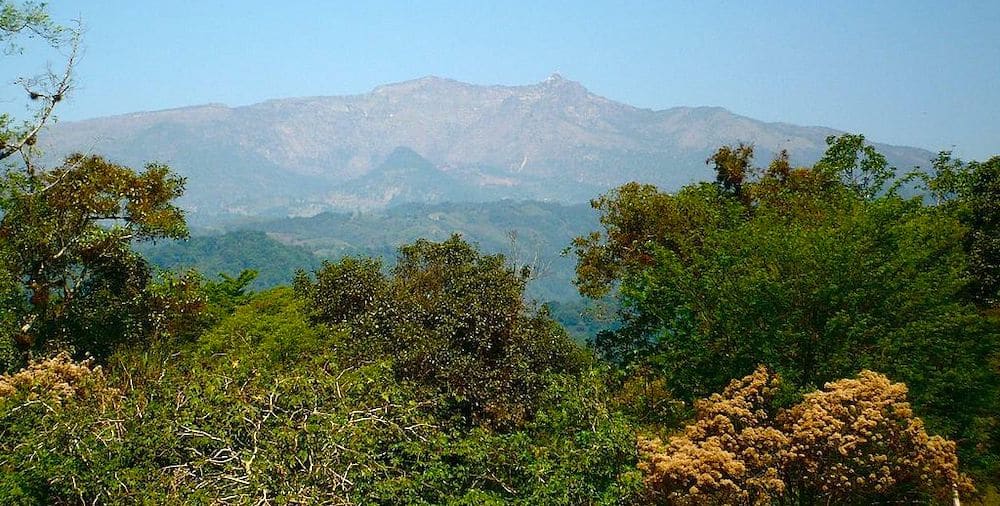
Cofre de Perote – ©Pacomexico CC BY 3.0 via Wikimedia Commons
The state has 31 environmentally protected areas in 21 different municipalities. Nine are urban parks, three are national parks (Pico de Orizaba, Cofre de Perote and San José de los Molinos). The Cofre de Perote National Park is 11,700 hectares of pine and oyamel forest. The Los Tuxtlas Biosphere Reserve covers the municipalities of Ángel R. Cabada, Santiago Tuxtla, San Andres Tuxtla, Catemaco, Soteapan, Mecayapan, Pajapan and Tatahuicapan for a total of 155,122 hectares. It contains various volcanos such as San Martín and Santa Marta and rich biodiversity as it stretches from sea level to higher elevations, with 16 climate regions groups into four climate types.
The Veracruz Reef System is also considered to be a national park and is mostly off the coast of Veracruz city, Boca del Río and Alvarado. The area includes coral reefs, seaweed beds and other marine vegetation, covering an area of 52,239 ha (129,085.4 acres). There are seventeen reefs in total, some of which jut above the surface to form small islands. This system links with the reef systems of Campeche and Yucatán.
Birding Veracruz
Veracruz is the largest state of Mexico, representing 3.7% of Mexico’s overall area. Its landscape has many types of habitat, from tropical rainforest to highland grasslands. Maybe because of this Veracruz has more than 759 bird species (more than two thirds of the Mexico list), one is endemic to the state and forty are Mexican endemics.
The state is part of Birdlife International’s Endemic Bird Area (EBA) project due to the number of endemic birds here. Some of these include Green-cheeked Amazon Amazona viridigenalis, Tamaulipas Crow Corvus imparatus, Altamira Yellowthroat Geothlypis flavovelata and Crimson-collared Grosbeak Rhodothraupis celaeno. Despite much of the deterioration of the forest areas, and being replaced by scrub and secondary communities of trees, it is still an important stopover for migratory birds as well. Many endangered mammal species can be found here including two endemic rodents as well as jaguar, ocelot, jaguarundi and white-nosed coati. The endangered Baird’s tapir may occasionally be spotted in the state’s southern jungle regions, such as Biósfera Los Tuxtlas. This region is also the northernmost extent of the primate Alouatta palliata or Mantled Howler.
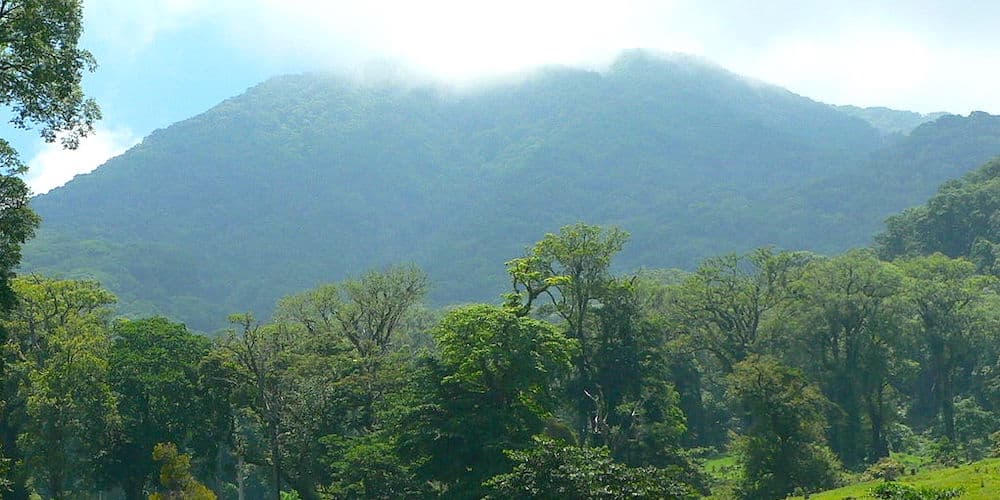
Biósfera Los Tuxtlas – ©Dongringo CC BY-SA 3.0 via Wikimedia Commons
In spite of many conservation efforts, much of Veracruz is deforested, and this has consequences for the bird populations. For example, in Veracruz, before 1886, there are records [including skins] of migratory individuals of the extinct Passenger Pigeon Ectopistes migratorios and of Harpy Eagle.
However, Veracruz has, still, many easily accessible birding areas where birdwatchers can see interesting bird species. For example, near to Xalapa, the state capital, it is possible to see many of the endemic and endangered species such as Mexican Sheartail Hummingbird Doricha eliza and to see the autumn migration of millions of birds (including many raptors). In the highlands the near extinct Golden–cheeked Warbler Dendroica chrysoparia still manages to hang on.
Veracruz is easily accessible by air through Heriberto Jara Corona International airport (Veracruz City) or Xalapa municipal airport. Whether you have just a few days or more there are ample birding opportunities. The sections below highlight the most productive birding areas in the state.
-
Altamira Wetlands
Satellite ViewAltamira Wetlands is the only place with a viable population of Altamira Yellowthroat (Geothlypis flavovelata). -
Alvarado Wetlands
InformationSatellite ViewHere a birder can see nesting birds of prey such as Snail Kite (Rosthramus sociabilis); Black collared-Hawk (Busarellus nigricollis); Common Black-Hawk (Buteogallus anthracinus); and Great Black-Hawk (Buteogallus urobitinga); and aquatic mammals as the Manatee. -
Cardel - Autumn Migration
InformationSatellite ViewOn the right day in October, a bird watcher can witness the awesome spectacle of the River of Raptors, when more than a million Swainson's and Broad-winged Hawks may pass overhead in a single day during the annual migration to Central and South America… -
Central Veracruz
Around 236 migratory bird species use Veracruz to nest or travel through towards their wintering grounds. There are 12 endemic or geographic restricted bird species, four bird species registered in the red data book, and 34% of the Mexican bird species considered as endangered. You can see, in the ravine of Naolinco, the northeast population of the Mexican Sheartail Hummingbird (this population is considered to be endangered, and some researchers say that it population represents a different species to that of Yucatan) -
Los Tuxtlas
WebsiteSatellite ViewThe Sierra de los Tuxtlas is a range of volcanic peaks that run right down to the Bay of Campeche on the coast of Veracruz. Rugged volcanic ridges reach from sea level up to about 6000 feet in elevation. Nestled among the peaks is Lake Catemaco, formed from the calderas of several extinct volcanoes. This wide range of geological features, from beach to crater to steep-walled canyons, coupled with the moist, tropical climate leads to a wide range of different habitats for birds and an incredible diversity of bird species (up to 568 by some counts) within a small area. -
Uxpanapa Tropical Rainforest
InformationSatellite ViewThere are 519 bird species reported here. Especially interesting are the forest remnants with karstic rock which hold endangered and endemic species such as Long-tailed Sabrewing (Campylopterus excellens) and Nava's Wren (Hylorchilus navai).
-
Number of bird species: 759
(As at December 2024)
Number of endemics: 1
Tuxtla Quail-Dove Zentrygon carrikeri
-
Avibase
PDF ChecklistThis checklist includes all bird species found in Veracruz , based on the best information available at this time. It is based on a wide variety of sources that I collated over many years. I am pleased to offer these checklists as a service to birdwatchers. If you find any error, please do not hesitate to report them. -
eBird
PDF ChecklistThis checklist is generated with data from eBird (ebird.org), a global database of bird sightings from birders like you. If you enjoy this checklist, please consider contributing your sightings to eBird. It is 100% free to take part, and your observations will help support birders, researchers, and conservationists worldwide.
-
Los Tuxtlas Tropical Biology Station
InformationSatellite View
-
Club de Observadores de Aves de Xalapa
Facebook PageUno de los principales objetivos del Club de Observadores de Aves de Xalapa (COAX) es disfrutar y promover la observación, estudio y conservación de las aves en México, ocupando el Estado de Veracruz nuestro principal objetivo… They are always happy to have visitor and new members for their outings. -
Pronatura
WebsiteActualmente Pronatura sostiene cuatro programas de conservación en Veracruz… Pronatura is a Mexican non-profit organization whose mission is the conservation of flora, fauna and priority ecosystems promoting society's development in harmony with nature.
-
*Protected areas of Veracruz
InformationSatellite ViewNational Parks, Bioreserves etc -
BR Los Tuxtlas Field Station
WebpageSatellite ViewThe research station permanently protects a sample of the tropical rain forest ecosystems. During 30 years scientific research has been carried out successfully on various aspects of the tropical ecosystem generating a substantial volume of literature. Such unique bank of information places Mexico in the vangard of scientific information regarding tropical rain forests. -
NP Cañón del Río Blanco National Park
InformationSatellite ViewThe park includes the upper watershed of the Río Blanco, where the river has carved a canyon through the Sierra Madre de Oaxaca, plunging over rapids and waterfalls as it descends from the mountains towards the Gulf Coastal Plain to empty into the Gulf of Mexico. -
NP Cofre de Perote
InformationSatellite ViewCofre de Perote is an extinct volcano located in the Mexican state of Veracruz, at the point where the Trans-Mexican Volcanic Belt, home to all of Mexico's highest peaks, joins the Sierra Madre Oriental. With an elevation of 4,282 metres (14,049 ft) above sea level, Cofre de Perote is Mexico's eighth highest mountain summit. -
NP Veracruzano Coral Reef System
InformationSatellite ViewAlso known as Sistema Arrecifal Veracruzano National Marine Park, is a national marine park .
-
eBird
SightingseBirding This Month
-
Bichodemonte Birding Tours
Local Tour OperatorExperience fall birding in the tropics and the greatest raptor migration hotspot in the world. -
David McCauley - The Incorrigible Birder
Tour OperatorI stumbled upon birding eight years ago and have been stumbling ever since. It's a helluva lot of fun. I live in Veracruz, Mexico where I struggle to make a living as a nature photographer/digiscoper. I also conduct birding tours. I despise "elitism" especially in birders. I love nature,cooking and a cold beer. I am a hawkwatch junkie… -
Discover Veracruz Tours
Tour OperatorVeracruz is home to over 550 different species of birds. In October each year, millions of hawks, vultures (Raptors) fly south over the state. -
FieldGuides
Tour OperatorThe amazing spectacle of huge numbers of migrating raptors combined with some highland birding and cultural highlights. -
Merlin Birding Tours
Tour OperatorEach fall 4-6 million raptors of 30 species are counted from two observation points in central Veracruz, Mexico, including up to 2 million Broad-winged Hawks! As these majestic birds migrate south they are funneled into a narrow bottleneck between the Sierra Madre Orientale Mountains and the Gulf of Mexico. This busy flyway also harbors amazing concentrations of other migrants: White Pelican, Wood Stork, White-faced Ibis, Anhinga, Scissor-tailed Flycatcher, and much more. This flyway actually holds the most visible and concentrated raptor migration on Earth! Remarkably, over 95% of the global populations of Swainson’s Hawks, Broad-winged Hawks, and Mississippi Kites pass through this narrow flyway each fall. -
Mexico-Birding Tours
Tour OperatorBirding Veracruz - the nine day tour... -
Naturalist Journeys
Tour OperatorJoin us on this exciting Mexico birding tour to Veracruz, the migration crossroads of the Americas, the intersection of diverse biological realms, and a site of historical encounters between peoples of the old and new worlds. -
Pronatura Veracruz
Tour OperatorPronatura is a Mexican non-profit organization whose mission is the conservation of flora, fauna and priority ecosystems promoting society`s development in harmony with nature. It also is a tour operator, with birding, butterfly, and cultural tours, and as specialists for the River of Raptor birding tours. -
Pteravia
Tour OperatorExperience the thrill of discovery on Pteravia’s next uncommon birding experience in beautiful Veracruz, Mexico and witness the planet’s largest hawk migration site. -
Raptours
Tour OperatorVeracruz River of Raptors Tour -
Red Hill Birding
Tour OperatorThere are few locations in the world that can claim to be a global migration destination, but Veracruz in fall is on that shortlist. -
Rockjumper
Tour OperatorMexico - Veracruz & Eastern Sierras Extension 2025 -
Travelian Tours
Tour OperatorVERACRUZ BIRDING TOUR Coastal Raptor Migration and Inland Coatepec Adventures -
WINGS
Tour OperatorMexico: Veracruz Migration is a Moving Experience -
Wildside Nature Tours
Tour OperatorVeracruz “River of Raptors” -
ecoTOURS
Tour Operator -
Amar Aves
Local Tour OperatorDay 1 - Veracruz city Arrival to Veracruz Airport, and drive to Hotel Mocambo. Night in Veracruz City. Dinner at Mocambo Hotel. Día 2 – Xalapa Early morning walk around the hotel grounds. After a nice breakfast we will head towards Xalapa. During our trip up to the mountains we may have time to visit Chichicaxtle (the second count site) and look for the raptor migration inland. After we arrive to our hotel and enjoy lunch, we will visit El Haya Ecological Park. Night at Hotel Gamma Nubara, Xalapa. Dinner at the hotel. Día 3 Xalapa - Macuiltepetl - Anthropology museum During the morning we will visit the Macuiltepetl Park (extinct volcano inside the city). Lunch. During the afternoon we can visit Miradores or the Anthropology Museum (very nice place, and a little bit of culture). Night at Hotel Gamma Nubara, Xalapa. Dinner at the hotel. Día 4 -Xalapa - Perote An early morning start will take us to the highlands, visiting Las Minas canyon, a very nice habitat (a spectacular view) of pine-oaks. Later in the morning we will be driving up to the Cofre de Perote area, even higher altitudes, with a habitat dominated by pines and fir trees. We will head to the city of Perote for lunch. After lunch we will be visiting the arid valley of Perote, looking for more desert-related birds. After an afternoon birding, we will head back to Xalapa. Night at Hotel Gamma Nubara, Xalapa. Dinner at the hotel. Día 5– Transfer to the coast - Chichicaxtle - Cardel First thing in the morning, on our way to the coast, we visit Miradores Lagoon, place for the new “Grass Wren”, and several resident and migratory species, like the Mexican Sheartail, Botteri´s Sparrow, Plain-breasted Ground-Dove, and the possible new split Rufous-napped Wren (maybe it will be “Veracruz Wren”), etc. After a well-deserve lunch along the road, we visit the rooftop of our hotel and look for migration, we can also check Chichicaxtle (the second count site inland). Night in Hotel Bienvenido, Cardel. Dinner at Hotel Bienvenido. Día 6 - Cardel - Cansaburro During the morning we will visit Playa Juan Angel (Johnny Angel Beach, river mouth, dunes, and scrub vegetation with open areas), ending the morning around Cansaburro (wetland and dune forest). Coming back late in the morning to Cardel, to look for migration from the hotel roof. Depending on the migration we can move between Cardel and Chichicaxtle or visit La Antigua and take a boat ride to the river mouth. Night in Hotel Bienvenido, Cardel. Dinner will be at La Antigua if we take the boat ride. Día 7 - Cardel - Quiahuiztlan During the early morning we will quickly visit the Farallon Lagoon, looking for waterbirds and other birds around. After this stop we will visit the Quiahuiztlan ruins (which can be a spectacular hawk watching site), an old Totonac cemetery. We will return to the hotel for lunch, and another opportunity to look for the raptor migration. At some point during the afternoon maybe after a quick visit to Chichicaxtle, we can check about the flight there before. Night in Hotel Bienvenido, Cardel. Dinner at the hotel in Cardel. Día 8– Cardel Since this is our last full day in the land of the biggest raptor migration in the world, we will start the day visiting the coast in search of small bird migration. After a morning of chasing birds, we will return to the hotel rooftop and search for raptor and aquatic bird migration. After lunch we will return to the hawkwatch to keep enjoying the spectacle of the migration, with the possibility of moving inland during the afternoon, following the line of migrants during their daily routine. Night in Hotel Bienvenido, Cardel. Dinner at Hotel Bienvenido. Día 9 – Tlacotalpan - Drive back to Veracruz city We will start the day driving south of Veracruz City, visiting open grasslands, which are good for all sorts of migratory species, as well as resident species. We will drive even further south for a lovely lunch, at the town of Tlacotalpan (“pueblo mágico”) along the majestic Papaloapan River. During the afternoon we will check the wetlands along the road. We will end the day back at the Hotel Mocambo. Night in Veracruz City. Dinner at Mocambo Hotel. Día 10 – Departure Day Flight back home 😊 10 day Veracruz birdwatching Itinerary
-
2019 [10 October] - Dave Mehlman
PDF ReportDespite the rigors of travel, everyone got up early and went for a short walk on the grounds of the Hotel Mocambo and along the adjacent beach. Despite the built-up area, it was a great place to start birding and we saw our first of the “must-see” birds of Veracruz, including Great Kiskadee, Tropical Kingbird, and Greattailed Grackle. Along the beach were a variety of aquatic birds, including Yellow-crowned Night-Heron, Laughing Gull, Willet, and Spotted Sandpipers. Plus, we found our first migrants of the trip, including Baltimore Oriole and Blue Grosbeak. Interestingly, we saw the Monk Parakeets that have recently colonized the area and a Sulphur-bellied Flycatcher. -
2021 [09 September] - Dave Mehlman
PDF ReportEveryone was raring to go, so we met in the morning for some birding around the Hotel Mocambo before breakfast. Walking out the back of the hotel and down to the nearby beach, we got off to a great start. The usual Monk Parakeets were present (the only location where they occur on this tour), as well as a lot of the “usual suspects” such as Great Kiskadee, Social Flycatcher, Golden-fronted Woodpecker, Melodious Blackbird, and Clay-colored Thrush. The beach yielded a few shorebirds, including Sanderlings, Willets, a Black-bellied Plover, and a Ruddy Turnstone. Oddly, only a few migrants were seen, including some Barn Swallows and Eastern Kingbirds... -
2022 [10 October] - Dave Mehlmaqn
PDF Report...we could pick out Swainson’s and Broad-winged Hawk, Osprey, and Peregrine Falcon overhead while the surrounding trees yielded our first sightings of some of the great local birds, including Altamira Oriole, Scrub Euphonia, Blue-gray and Yellow-winged Tanager, and a very nicely perched pair of Cinnamon-bellied Saltators. After that very fun afternoon, we returned to the Bienvenido for dinner in their restaurant, the bird checklist, and plans for the next day... -
2023 [03 March] - Adam Walleyn
PDF Report...it didn’t take long to find our two most desired targets with a female Mexican Sheartail perched up nicely in the scope and a confiding group of Veracruz Wrens. Other highlights included a good raptor migration led by Swainson’s Hawk, along with Broad-wings and a Zone-tail. Amongst many other species were Couch’s Kingbird and Morelet’s Seedeater... -
2023 [10 October] - Eric Hynes & Jorge Montejo-Diaz
ReportWe came to witness migration on a grand scale and Veracruz did not disappoint! Day four was what air traffic controllers have nightmares about. When that stalled front finally moved off, the migration flood gates opened for Turkey Vultures, Broad-winged and Swainson's hawks. -
2025 [10 October] - Vernie Aikins
PDF ReportFrom the beaches to the mountains, we birded in many varying habitats. Much time was spent in the lowland areas around Veracruz, which consisted of Tropical Savannah, and is home to many of our favorite species, like Mexican Sheartail and Veracruz Wren. W
-
David McCauley - The Incorrogible Birder
BlogWelcome to my blog. I stumbled upon birding eight years ago and have been stumbling ever since. It's a helluva lot of fun. I live in Veracruz, Mexico where I struggle to make a living as a nature photographer/digiscoper. I also conduct birding tours. I despise "elitism" especially in birders. I love nature,cooking and a cold beer. I am a hawkwatch junkie -
Veracruz Hawkwatch
BlogFor birders and raptor enthusiasts everywhere; a weblog about Spring and Fall raptor migrations in Veracruz. Each fall millions of migrating raptors pass though a narrow corridor in central Veracruz Mexico. Enjoy links to photos of this migration spectacle or read accounts by other hawkwatch observers
